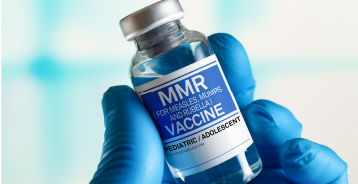Prevent mumps and measles
 Medical Conditions
Medical Conditions
We need to process your personal information for you to interact with this website. We also use Cookies to enhance your experience. Please accept the Website Ts and Cs and Data Protection and Privacy Policy to fully access the website.
As if COVID-19 weren’t enough to have to deal with, many have to deal with acne break outs around the nose, cheeks, mouth and chin from wearing face masks. Mask acne and skin irritation, also (un)affectionately known as maskne, is caused by the humid environment, as well as friction that your face mask creates while you’re wearing it. Instead of the usual red, painful bumps caused by hormones, the most common acne from masks is shallow whiteheads, known as acne mechanica, from chaffing and clogged pores.
But we don’t want to stop wearing masks because they help us to stop the spread of COVID-19. So what do we do in this catch-22 situation? Follow the easy steps below which may help to prevent maskne.
You should wash your cloth mask after every use anyway. Washing your mask should get rid of any acne-causing bacteria that thrives in the humid environment around your mouth and nose. Use a mild detergent, preferably fragrance free, as a harsh detergent may irritate your skin further.
Cloth masks of 100% cotton are recommended for a good level of protection against COVID-19, while allowing your skin to breathe. They are also easily washable. Invest in more than one so that you always have a clean one to wear.
You should avoid touching your face anyway to stop the spread of COVID-19, but it should also help to prevent acne. Also do not pick at your acne. This could cause further irritation and flare-ups.
Your skin’s barrier keeps bacteria out, while locking moisture in. Wash your face twice a day with a gentle non-soap cleanser. Don’t use too many exfoliating and detox cleansing masks, and avoid face scrubs and products that contain acids (such benzoyl peroxide) and/or retinol as much as possible as you don’t want to not want to dehydrate your skin. When your skin is dehydrated, your skin’s barrier is damaged and your sebaceous glands produce more oil, which could leave you with more clogged pores than you already have.
Follow face cleansing with a fragrance- and oil-free moisturiser. Don’t be shy with your moisturiser as it may also help reduce friction while wearing your mask.
One great thing about having to go out less is having more time to let your skin breathe. We understand if you want to put on some make-up for a video call, but consider removing it afterwards.
Also consider less or no make-up when you go out. Focus on your eyes perhaps, but avoid wearing make-up under your mask, where it can clog your pores.
If the above tips don’t help, you may want to consider seeking medical advice. Bestmed has a countrywide network coverage with over 15 800 network provider agreements.
Rashes due to allergies are not common with masks, so it may be a good idea to consult your healthcare practitioner if you suspect an allergic reaction.
Also, if you think stress may be a major cause of your skin problems, again speak to your healthcare practitioner for stress-relief solutions and topical skin treatment.